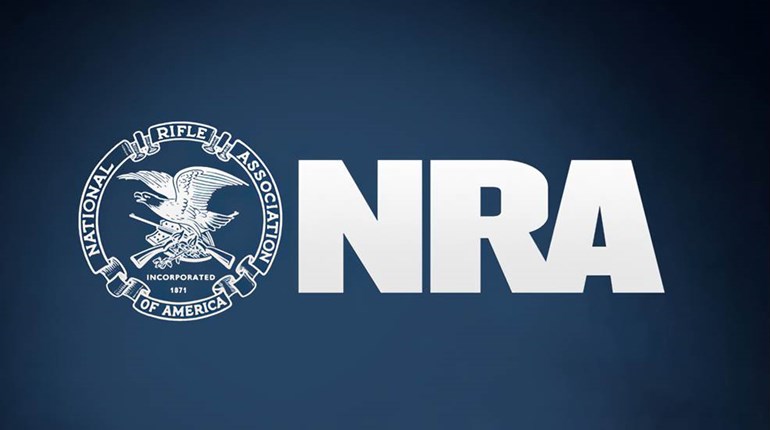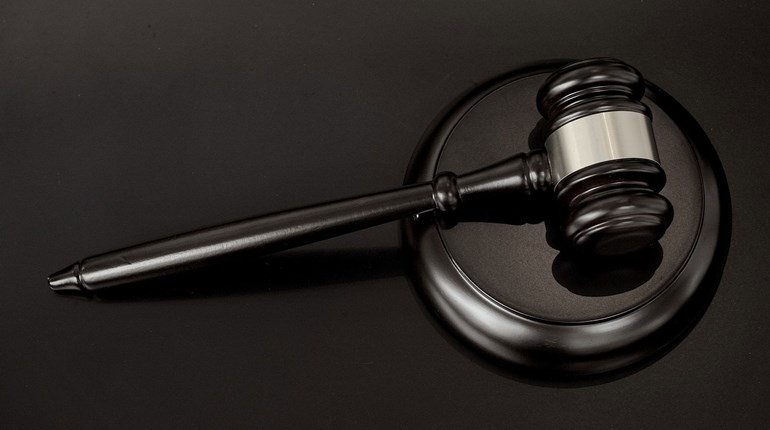
This feature appears in the May ’16 issue of NRA America’s 1st Freedom, one of the official journals of the National Rifle Association.
On Feb. 13, Second Amendment advocates and other patriotic Americans were shocked with news of U.S. Supreme Court Justice Antonin Scalia’s sudden death at the Cibolo Creek Ranch in West Texas. An avid sportsman, the 79-year-old had spent the previous day on a quail hunt. His body was found the next morning in his room, his death attributed to natural causes. Justice Scalia’s passing puts the Second Amendment at a crossroads. As I will explain below, his replacement will either reinforce the Supreme Court’s recognition of the individual right to keep and bear arms … or contribute to its ultimate destruction.
But first, we should pay tribute to this legal giant and the indelible mark he left on America’s constitutional understanding after nearly three decades on our nation’s highest court.
Antonin Scalia was born in 1936 in Trenton, N.J. His father was an Italian immigrant and his mother was the daughter of Italian immigrants. He grew up in Queens, N.Y., as America was struggling to rebound from the Great Depression and then emerging victorious in World War II. His parents were devout Catholics and passed on to him the values of faith, hard work, discipline and respect for America, its laws and its institutions. Despite the clarity with which we described the Second Amendment’s core protection for the right of self-defense, lower courts, including the ones here, have failed to protect it.
Justice Scalia attended a Jesuit military school in Manhattan, and by his own estimation was “not a cool kid.” He was, however, a gifted scholar and finished first in his class. He went on to graduate valedictorian and summa cum laude from Georgetown University and to receive his law degree from Harvard.
Justice Scalia was nominated to the Supreme Court in 1986 by President Ronald Reagan. He was confirmed by the U.S. Senate on a vote of 98-0. Before joining the court, Justice Scalia had served on the U.S. Court of Appeals for the District of Columbia Circuit.
Firearms were not an abstraction to Scalia, as he was an avid hunter and outdoorsman. He even made a point of mentoring fellow Supreme Court Justice Elena Kagan in her first exposure to shooting and hunting, after she promised during her confirmation to try hunting with anybody who would invite her. “I grew up at a time when people were not afraid of people with firearms,” Scalia recounted in 2006. He went on to reminisce about traveling from Queens to Manhattan while carrying the firearm he used as a member of his school’s rifle team. “Could you imagine doing that today in New York City?”
Underscoring his character, Scalia is warmly remembered by his ideological opposites on the Supreme Court. Besides introducing Justice Kagan to the shooting sports, he was a close friend of Justice Ruth Bader Ginsburg, the court’s most consistently liberal vote, bonding with her over shared family vacations and operas. “What’s not to like?” Scalia once joked about their friendship. “Except her views on the law, of course.”
Justice Scalia’s reputation as a fierce and committed defender of the U.S. Constitution is unparalleled. He was the nation’s chief proponent of the concepts of originalism and textualism. Originalism is a form of constitutional interpretation that uses history, linguistics and text to determine the meaning of the Constitution as understood by its framers. Textualism similarly focuses on the actual words of legal enactments to determine their meaning.
Both techniques are designed to constrain the role of the judicial discretion in deciding cases. Justice Scalia was firmly committed to the rule of law, and he criticized the concept of a “living Constitution” that yields to judicial preferences and changing social conventions. As he said in 2013, “The judge who always likes the results he reaches is a bad judge.”
Originalism and textualism were on full display in Justice Scalia’s 2008 majority opinion in District of Columbia v. Heller. This case repudiated the judicial fiction embraced by many academics that the Second Amendment confers only a “collective right” and is therefore a dead letter. Justice Scalia’s opinion methodically dismantled this argument by focusing on the words of the Second Amendment as they were understood by the people who actually wrote them (and not later by elites who deem firearms a social ill). It then went on to demonstrate how the early case law, commentary and constitutions of the states reinforce the court’s conclusion that the Second Amendment protects an individual right to keep and bear arms, independent of service in an organized militia.
Heller also dismissed the idea that criminal misuse of firearms requires judges to have broad discretion in determining whether gun control laws violate the Second Amendment by “balancing” the interests at stake. “A constitutional guarantee subject to future judges’ assessments of its usefulness is no constitutional guarantee at all,” Justice Scalia wrote for the majority. “Constitutional rights are enshrined with the scope they were understood to have when the people adopted them, whether or not future legislatures or [yes] even future judges think that scope too broad.”
Unfortunately, lower courts have largely defied this guidance. And Justice Scalia will never have the opportunity to set them straight with his characteristic wit and bluntness. He did, however, join two dissents from the court’s denial of a writ of certiorari, in which he and Justice Clarence Thomas chastised their court for failing to consider subsequent Second Amendment cases and the lower courts for ignoring the Supreme Court’s Second Amendment jurisprudence. Whether his defining contribution on the Second Amendment is carried forward to succeeding generations or dismissed as a brief and inconsequential aberration is now up to us.
The first of those opinions (concerning a San Francisco “safe storage” ordinance) stated, “Despite the clarity with which we described the Second Amendment’s core protection for the right of self-defense, lower courts, including the ones here, have failed to protect it.” More recently, when the Supreme Court refused to hear a 7th Circuit opinion upholding a Chicago area ban on popular semi-automatic firearms, Thomas and Scalia wrote, “Based on its crabbed reading of Heller, the [7th] Circuit felt free to adopt a test for assessing firearm bans that eviscerates many of the protections recognized in Heller and McDonald.”
Both the Heller and McDonald cases were decided by 5-4 margins. So it’s no exaggeration to say that the continued vitality of the Second Amendment depends on who ends up filling the vacancy left by Justice Scalia’s passing.
I have previously discussed at length how President Obama and Hillary Clinton are not only anti-gun, but radically and devoutly so. Obama once defended the very D.C. handgun ban that the Heller decision ruled unconstitutional. And Hillary Clinton told a group of wealthy donors in New York that the Supreme Court was “wrong” to embrace Justice Scalia’s opinion on the Second Amendment. Both have openly endorsed Australia’s confiscatory approach to gun control, which featured massive retroactive gun bans that forced law-abiding owners to surrender their firearms to the government.
The appointment of Scalia’s successor represents a clear line in the sand. Neither of Obama’s Supreme Court nominees, Elena Kagan and Sonia Sotomayor, support our right to keep and bear arms, despite assurances during their confirmation hearings that they viewed Heller as “settled law.” It would be a disaster for the Constitution and the country if Justice Scalia is replaced by someone who is not completely and publicly committed to upholding our fundamental, individual right to keep and bear arms.
The same goes for Hillary Clinton. She must never be given the chance to make good on her promise to “make that case [of how ‘wrong’ Heller was] every chance I get.”
With Justice Scalia’s death, America has lost one of its greatest defenders of the Constitution. Whether his defining contribution on the Second Amendment is carried forward to succeeding generations or dismissed as a brief and inconsequential aberration is now up to us. The next president might well have the opportunity to nominate more Supreme Court justices. Now, more than ever, we must ensure that the person who does that can be trusted to uphold our right to keep and bear arms.


































